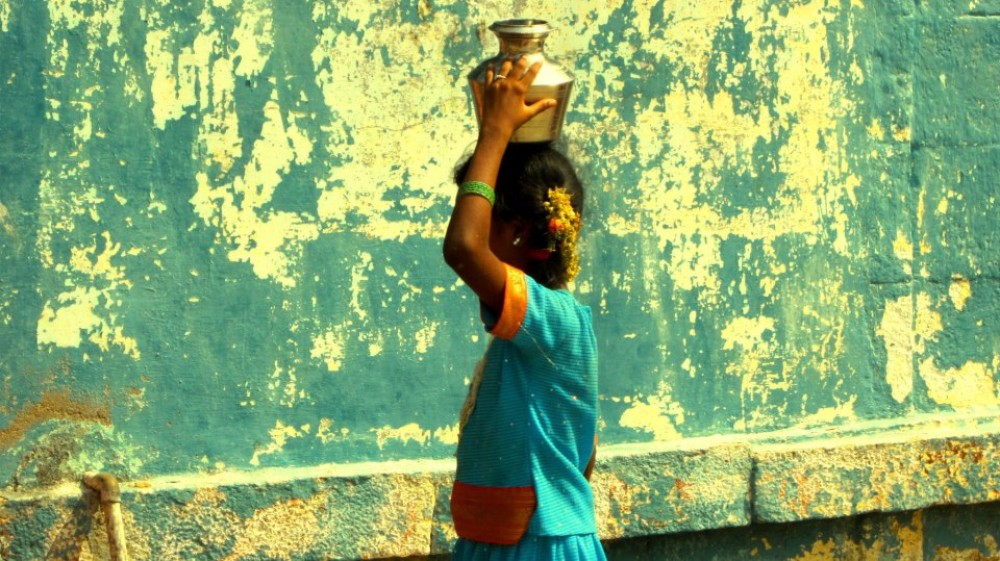The following is an interview with Kevin C. O’Dowd, Director of Stopping the Shakiro. This compelling 22 minute documentary tells the story of two female students who attend the Ethno-High School in the rural village of Chajal, outside the city of Tumaco in South-West Colombia. Chajal is primarily comprised of Afro-Colombians who are disproportionately affected by Colombia’s 5 decade-long armed conflict. As a result of the conflict sensitive and ethno-centric curricula, taught at the ethno-high school,the two students share with us their transformative experience as the audience learns what it is like living alongside armed conflict in Colombia.The film weaves in key stakeholder interviews from INEE, UNICEF, Save the Children, NRC and ECHO.
1. What drew you to make a film about this population?
I was curious about why the Afro-Colombian population is disproportionately affected by the armed conflict. The Afro-Colombian population lives on the Pacific Coast in the western parts of the Andes mountain range. They receive very little support from the Colombian government and I wanted to explore what the people of this community actually thought of this negligence. However, I found it extremely challenging to delve further on the subject. As one can imagine, this is a very contentious issue, as the iNGOs working with this population have to work with the Colombian government and therefore have to be diplomatic when expressing their opinion regarding what the government is doing on the ground. All of the Afro-Colombian interviewees in the film, including ones in the government, spelled out reasons why the government’s support does not reach their community. In my opinion, the Colombian government is trying to lend support but for some reason it seems to fall short, when it crosses the Andes.
2. What educational challenges does this population face?
The educational challenges that the Afro- Colombian population, in the Tumaco region, face is the lack of quality education. Other challenges are what one may find in any developing context: young mothers dropping out of school to raise a family; no money to afford school supplies and school uniforms; parents that don’t see the value of an education-some parents can easily understand how fishing will bring in economic security, as compared to an education; the school schedule is not a good fit for the young mothers who have to raise a family; young people don’t see themselves in the text books, the curriculum was not created for their population and therefore they lose interest.
3. Does education address these challenges?
This Ethno-High School does address these challenges. The curriculum was designed and implemented for and by Afro-Colombians living in the Tumaco region. The school schedule is on the weekend, therefore making it easier for parents to raise a family and work during the week and then study during the weekend. The high school’s aim is to create leaders in the community who understand that they have opinions that can be voiced by other means than joining an armed group. The schools are empowering each student with the knowledge of better fishing practice, agro-forestry, and how to confront conflict in a professional and rational manner.
4. Why is this film significant?
This film is significant because it attempts to address the challenges raised in question 1, while at the same time, trying to portray Colombia in good light. We read a lot of negative stories coming from Colombia but there are thousands of positive stories, like that of the Ethno-High School.
5. What questions need further exploring or are contentious in the context of this population?
Questions that I think need further exploring would be to investigate what exactly the Colombian government is doing in these hostile regions that is helping to improve the lives of marginalized populations. This is such a contentious topic because many people in Colombia, and outside Colombia, including diplomats, do not want to address it. What is really at the heart of this problem is racism. Just as in the US, there is substantial racism in Colombia. But there are not a lot of people who want to talk about it. The people on the Pacific Coast are neglected by the state because of their race.
The film is being screened at Teachers College, Columbia University on September 18th, 7:00-8:30 PM. Russell, 306. Screening followed by Q & A with the Director.
Kevin C. O’Dowd, is a Humanitarian Media Professional who utilizes visual storytelling as a communications tool to raise awareness of humanitarian issues and support global efforts to aid programs for countries in need, including Columbia, Afghanistan, and North America. Kevin has an M.S. in Global Affairs from New York University and a B.A. in Film and Video from Columbia College, Chicago.
